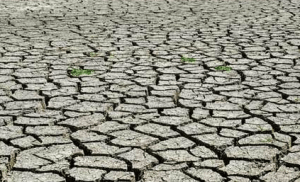Climate-driven water scarcity could hit economic growth – World Bank
 Water scarcity, exacerbated by climate change, could cost some regions up to 6 per cent of their gross domestic product (GDP), spur migration, and spark conflict, according to a new World Bank report.
Water scarcity, exacerbated by climate change, could cost some regions up to 6 per cent of their gross domestic product (GDP), spur migration, and spark conflict, according to a new World Bank report.
The report dubbed “High and Dry: Climate Change, Water and the Economy” said the combined effects of growing populations, rising incomes, and expanding cities would see demand for water rising exponentially, while supply becomes more erratic and uncertain.
Unless action is taken soon, the report said, water would become scarce in regions where it was currently abundant – such as Central Africa and East Asia – and scarcity would greatly worsen in regions where water was already in short supply – such as the Middle East and the Sahel in Africa.
The report which was made available to the Ghana News Agency on Friday by the World Bank, noted that these regions could see their growth rates decline by as much as 6 per cent of GDP by 2050 due to water related impacts on agriculture, health, and incomes.
The report also warns that reduced freshwater availability and competition from other uses – such as energy and agriculture – could reduce water availability in cities by as much as two thirds by 2050, compared to 2015 levels. “Water insecurity could multiply the risk of conflict,” the report added.
It said food price spikes caused by droughts could inflame latent conflicts and drive migration; declaring that where economic growth was impacted by rainfall, episodes of droughts and floods have generated waves of migration and spikes in violence within countries.
“Water scarcity is a major threat to economic growth and stability around the world, and climate change is making the problem worse,” said World Bank President Jim Yong Kim.
“If countries do not take action to better manage water resources, our analysis shows that some regions with large populations could be living with long periods of negative economic growth. But countries can enact policies now that will help them manage water sustainably for the years ahead,” he added.
The negative impacts of climate change on water could be neutralized with better policy decisions, the report said, with some regions standing to improve their growth rates by up to 6 percent with better water resource management.
“There is a silver lining,” said the report’s author and a World Bank Lead Economist, Richard Damania.
“When governments respond to water shortages by boosting efficiency and allocating even 25 per cent of water to more highly-valued uses, losses decline dramatically and for some regions may even vanish. Improved water stewardship pays high economic dividends,” he said.
Source: GNA
